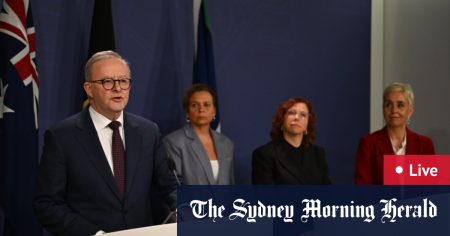The Albanese government is aiming to reshape Australia’s economy through the Future Made in Australia Act, with plans to invest billions of dollars in manufacturing critical products and services domestically. This includes developing medicines, batteries for solar energy storage, electric vehicles, and industries in quantum computing and medical manufacturing. Treasurer Jim Chalmers is a proponent of the “Mission Economy” advocated by Italian economist Mariana Mazzucato, which involves government intervention to shape markets and address social and economic challenges.
While the government’s move has sparked some criticism, including concerns about potential wastage of taxpayer money, business leaders like David Thodey emphasize the importance of avoiding government support for inefficient and non-competitive companies. Collaboration with the private sector, transparency, and accountability in decision-making are viewed as essential for the success of the Future Made in Australia Act. UTS chancellor Catherine Livingstone also highlights the importance of identifying Australia’s comparative advantages and investing in intellectual property before pursuing manufacturing initiatives.
The decline of manufacturing in Australia over the past few decades has prompted the need for rebuilding and reshaping the industry to ensure the nation remains globally competitive, particularly in the green energy transition. The COVID-19 pandemic and changing geopolitical dynamics have further underscored the importance of domestic manufacturing for critical goods and services. The Future Made in Australia Act is likened to the US Inflation Reduction Act and aims to support industry development in areas like cleantech, critical minerals, and medical manufacturing.
Notable companies like Syrah Resources in Australia have benefited from government incentives similar to what the Future Made in Australia Act could offer. Syrah’s CEO Shaun Verner sees potential for Australia to compete with global manufacturing giants in areas like renewable energy and electric vehicles. The Act is expected to consolidate several government funds to support various sectors, including the National Reconstruction Fund, Clean Energy Financial Corporation, Hydrogen Headstart fund, and Medical Research Future Fund.
The Act’s focus on strategic assets and advanced manufacturing has been positively received by industry leaders like Dr. Andrea Douglas of CSL, who has been involved in discussions on medical manufacturing investments and research funding. Ivan Power, heading the National Reconstruction Fund, aims to attract investments from a variety of sources to develop industrial capabilities across different sectors. Companies like Phebra Pharmaceuticals in Lane Cove are looking to leverage the Act to accelerate their growth and enhance their manufacturing capabilities in response to global trends favoring onshoring and sovereign manufacturing capability.














